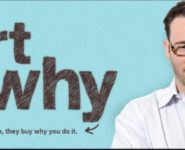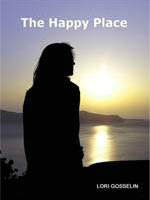How Can We be Sure of What We Know?

My daughter is studying for her PhD in clinical psychology. As you can imagine, this makes for many interesting conversations! Recently she told me she had learned that we only look for evidence to support what we believe; we never look for evidence to contradict it.
Since we usually only see what we’re looking for and we only seek evidence to support what we believe this begs the question: how can we be sure of what we know?
Say, for instance, we have a belief that you just can’t get good service in a restaurant. That belief will foster an expectation that will predispose us to receive bad service at restaurants most of the time. We will be attracted to restaurants that give bad service or find ourselves seated in the section of a waiter who is having a bad day. Even if the service is good we will only notice the things that go wrong because that is the evidence that supports our belief. Each new experience will strengthen that belief, one we won’t be likely to question even when our friends tell us they experience good service at restaurants.
This is because we don’t think that what we’re seeing is the result of a belief. We think what we’re seeing is reality (which, paradoxically, is also true because our beliefs become our reality).
By the time we’re old enough to read we have developed a personal worldview comprised of our compiled information about how life works. In psychology this is called a schemata. (I like to call it our personal Theory of Everything.) Since we began to form this worldview when we were very young, if we haven’t revised it since then doesn’t that mean we’re still seeing the world from a child’s perspective?
Our belief systems need updates, just as our devices do. How do we know which of our many beliefs need upgrades and how do we upgrade them? By noticing the things that make us feel uncomfortable, sad, angry or annoyed and especially the things we find ourselves over-reacting to. These are the “Update Available” alerts.
When I get an alert I look to my belief for answers, not to the situation, though the situation, a manifestation of the belief, offers clues. So I explore it all by asking questions:
- How do I feel about this?
- What am I telling myself this means?
- What deep belief is this pointing to?
- Is it really true?
If I stay with these questions long enough I discover an old, erroneous belief that had been hiding in my subconscious since early childhood.
How do you know that what you know is true? How do you Update your beliefs?
Photo Credit: Archangel12





 Welcome to Life, for instance!
Welcome to Life, for instance! “Lori shares plenty of feet-on-the-ground advice and techniques for forming and fostering community... The newcomer to community building will get a solid foundation, and the experienced community builder will find a useful framework as well as some new tools for the toolbox.”
“Lori shares plenty of feet-on-the-ground advice and techniques for forming and fostering community... The newcomer to community building will get a solid foundation, and the experienced community builder will find a useful framework as well as some new tools for the toolbox.” "Lori has put together a real
page turner of a book. With
great humility Lori has woven
together a very insightful
personal story of transformation...
and in the process has put
together a doable set of steps
that anyone can do and
follow to their own happy place."
"Lori has put together a real
page turner of a book. With
great humility Lori has woven
together a very insightful
personal story of transformation...
and in the process has put
together a doable set of steps
that anyone can do and
follow to their own happy place."






